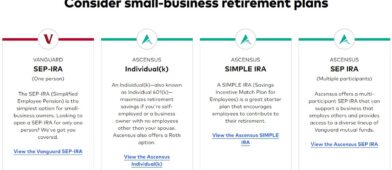It’s common knowledge that the vast majority of active fund managers fail to beat their benchmark indices.
Every year, Warren Buffett writes a letter to Berkshire Hathaway shareholders and the first page is a table comparing the annual change in the market value of Berkshire Hathaway vs. the S&P 500 with dividends included.
His compounded returns through 2022 are impressive (19.8% vs. 9.9%) but it’s uncommon for him to beat the S&P 500 on a year to year basis (and Berkshire Hathaway owns entire private companies, in addition to shares in a handful of public companies).
If most active fund managers can’t do it and Warren Buffett, one of the most successful investors of all time, can’t do it… how can you?
But every day, people try. And sometimes they succeed.
And guess what happens when they do? Nothing.
Table of Contents
🏁 Begin with the end in mind
What happens if you get 10% compounded returns instead of 9.9%? Your portfolio is a little bit bigger.
What if you get 12% instead of 9.9%? It’s even bigger still.
But here’s a secret – nothing happens if you beat the market.
But your attempts to beat the market will cost you. It may cost you money, for those times you don’t beat the market. It will also cost you time, because you’ll be spending time on research, buying and selling, and all the other crap you do in support of that.
Is it possible to beat the market? Of course.
Is it possible to beat it consistently? Yes, but extremely unlikely. And is the downside risk worth the upside?
😋 Do you know about Dunning-Kruger?
The Dunning-Kruger effect is a sneaky and pernicious cognitive bias. It’s when you overestimate your own ability in an area where you have limited knowledge and experience. It’s why Twitter/X was filled with “medical experts” during the pandemic and “legal scholars” during the Depp v. Heard trial.
It’s also why so many people think they can beat the market.
And many forms of financial entertainment encourage this bias. They show you tickers and analysis and charts and Best Of lists to drum of excitement and “help” you invest better. Look at all the information you have!
They try to sell you on investment advice services to help you pick the next hot stock investment. They want you to watch their shows because eyeballs sell advertising.
But the reality is that no one can predict the future. Even if you the future, you don’t know how other market actors will behave and how that will influence the performance of the stock.
💵 You Won’t Bet Big Enough
When Goerge Soros “broke the Bank of England” in 1992, he bet 10 billion dollars through his hedge funds and, after all the dust settled, he made about a billion dollars in profit. A modest 10%. It was just 10% of a massive number.
Betting $10,000 on a stock to make $1,000 makes for a fine story but it won’t move the needle, especially given the amount of risk you’ve taken on.
The truly successful investors rely on massive bets with massive upside. They aren’t looking to squeeze a 10% return out of an investment. They typically want it to be a home run or a strike out. They can afford to strike out, especially if they’re a fund investing other people’s money, but can you?
How many strikeouts before you’re out of the game?
⏰ Time Is A Finite Resource
You can get market returns by simply buying an index fund. You get the average stock market return but it takes almost no time. It’s the simplest no-brainer in the world.
If you want to make it even less brain, buy a target date fund. Target date funds will handle the asset allocation too, based on your age.
How much time would you need to devote to all the company research required to feel confident you can beat the market? Do you want to read stock charts and financial reports? It’s certainly greater than zero.
Those are hours you aren’t spending on other things such as your favorite hobbies, friends, family, fitness, etc.
Your bet is not only your money but also your time. You will lose all of your time, the question is whether it’ll translate to a greater return on your money.
✨Related: How to be a More Patient Investor
🎊 It’s Fun And That’s OK
I recognize that there is fun in investing and having a little more hand-on approach. It’s exciting to see your stock picks go up.
But we know it’s gambling.
If you enter into it with the same mindset you’d have at a blackjack table, you’re OK. You know to double down on 11 and to split 8s. You’re willing to give up a few percentage points in odds and you get entertainment in return.
I have that itch too. I scratch that itch by picking dividend growth stocks. I recognize that it’s less efficient than even investing in a dividend growth ETF or something similar.
But it scratches that itch in a more way that seems a bit more responsible than picking growth stocks.
It’s OK to have a small allocation that you play with, but realize that’s what you’re doing. You’re entertaining yourself, you’re not investing. And that’s OK!
And to be frank, no one really cares about your amazing investing story. 😂
✨ Related: 23 Best Stock Shareholder Perks: Free Chocolate, Cruise Ship Credits, and More



